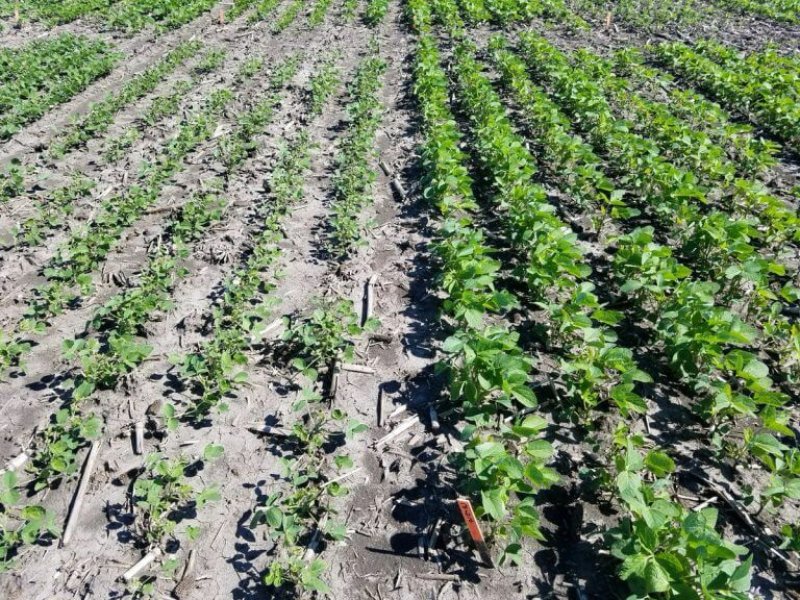Despite being banned for in-crop use this summer in Arkansas, dicamba is a suspect in damage to thousands of acres of soybeans and to vegetables, backyard gardens and trees.
Farmers and regulators in other soybean-producing states that have allowed dicamba, even with some restrictions, have reported similar damage this year, a repeat from a year ago.
…
Use of the herbicide on crops has been banned in the state since April 16. … While the complaints this year are still being investigated, Plant Board officials and weed scientists believe some farmers sprayed dicamba illegally in Arkansas well after the April 16 cutoff date because it takes seven to 21 days for dicamba symptoms to show.
…
The inspectors’ visit, which also took them to…Tennessee and Missouri …, was part of the agency’s work in deciding whether to re-register dicamba formulations…. The current two-year registration for those products expires Nov. 9…. EPA representatives are conducting similar tours in other states.
…
Farmers…who used the herbicide praised its effectiveness against pigweed and touted high yields in the fall, but [some] weed scientists…say even the newer formulations of dicamba can “volatilize”…and move to susceptible crops and other vegetation.
The manufacturers said applicator error was mostly to blame and…expanded training sessions to thousands of farmers in states where the new dicamba formulations could still be applied.
Read full, original article: EPA visits fields in Arkansas hurt by dicamba































